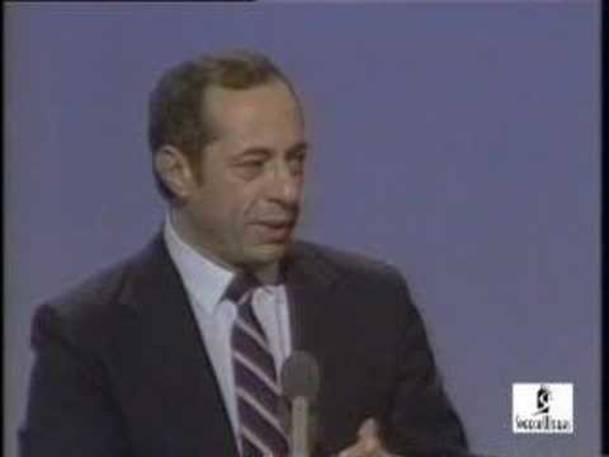And here came the lunge: "Mr. President -- Cuomo erupted -- you ought to know that this nation is more a "Tale of Two Cities" than it is just a "Shining City on a Hill." Then he elaborated:
“A shining city is perhaps all the President sees from the portico of the White House and the veranda of his ranch, where everyone seems to be doing well. But there's another city; there's another part to the shining the city; the part where some people can't pay their mortgages, and most young people can't afford one; where students can't afford the education they need, and middle-class parents watch the dreams they hold for their children evaporate.
In this part of the city there are more poor than ever, more families in trouble, more and more people who need help but can't find it. Even worse: There are elderly people who tremble in the basements of the houses there. And there are people who sleep in the city streets, in the gutter, where the glitter doesn't show. There are ghettos where thousands of young people, without a job or an education, give their lives away to drug dealers every day. There is despair, Mr. President, in the faces that you don't see, in the places that you don't visit in your shining city.”
It’s not by chance that such speech came from an American of Italian origin. For Mario Cuomo, in fact, the “Two Cities” argument was strictly connected to a “Tale of Immigration.” Here is how he elaborated it, turning the story of his Italian immigrant family into a universal symbol:
“I watched a small man with thick calluses on both his hands work 15 and 16 hours a day. I saw him once literally bleed from the bottoms of his feet, a man who came here uneducated, alone, unable to speak the language, who taught me all I needed to know about faith and hard work by the simple eloquence of his example. I learned about our kind of democracy from my father. And I learned about our obligation to each other from him and from my mother. They asked only for a chance to work and to make the world better for their children, and they -- they asked to be protected in those moments when they would not be able to protect themselves. This nation and this nation's government did that for them.
And that they were able to build a family and live in dignity and see one of their children go from behind their little grocery store in South Jamaica on the other side of the tracks where he was born, to occupy the highest seat, in the greatest State, in the greatest nation, in the only world we would know, is an ineffably beautiful tribute to the democratic process.”
It should not be forgotten that by that speech Mario Cuomo was introducing to the Democratic Convention the Mondale-Ferraro ticket, where fellow Italian American Geraldine Ferraro was to be, in his words: “America's first woman Vice President, the child of immigrants, and she -- she will open with one magnificent stroke, a whole new frontier for the United States.”
True, the Mondale-Ferraro ticket was defeated. And seen 30 years later from the perspective of the Obama era, all this may seem political archeology. But we like to think that Mario Cuomo’s 1984 keynote address did contribute to future events in the Democratic Party and in this country at large. And it proved that the Italian-American community is capable of generating political figures of high profile who can mobilize the dreams and hopes of the American public at large.
Definitely this was a man who made America better.


